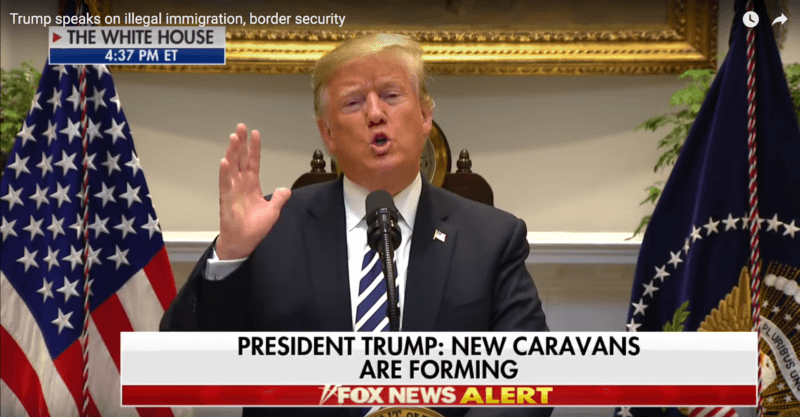As Shutdown Over Wall Drags On, Revisit MEF Videos on the Politics of Fear

It’s no mystery that fears of immigration played a central role in Donald Trump’s 2016 run for the presidency, from his announcement speech invoking Mexican criminals and rapists to his convention speech describing immigrants as a major source of “violence in our streets and chaos in our communities.”
Today, more than two years into his administration, Trump’s nightmare vision of immigration seems to be reaching a fever pitch.
Over the course of the longest government shutdown in U.S. history, Trump has repeatedly made the case for a $5.7 billion border wall by conjuring up grisly images of pathologically violent, drug-dealing criminal migrants pouring over the southern border and committing beheadings, rapes, and hammer murders. While most of these claims have been debunked as wild exaggerations, distortions, and outright lies, clear signs are now emerging that Trump’s fear-based appeals may be paying political dividends. Recent polls show that even though most Americans now blame Trump for the shutdown, Republicans continue to support him in huge numbers and overall public support for the wall has actually risen to all-time highs.
As dark as this moment is, it also provides a good opportunity for educators to help students think critically about how the politics of fear have the power to shape public attitudes and government policy. With that in mind, we encourage you to revisit a number of MEF videos that look explicitly at the long history of media stereotyping, racial scapegoating, and political fearmongering in the United States.
In particular, we recommend the following three films:
1. Latinos Beyond Reel
Latinos Beyond Reel is an eye-opening look at the destructive personal and political fallout of Latino stereotypes in American news and entertainment media.
2. The Mean World Syndrome
The Mean World Syndrome is media scholar George Gerbner’s fascinating examination of how narratives of violence in news and entertainment media cultivate reactionary attitudes toward minorities.
3. The Great White Hoax
The Great White Hoax is bestselling author Tim Wise’s eye-opening look at how American political leaders of both parties have been tapping into white anxiety and scapegoating people of color for decades to divide and conquer working class voters.

